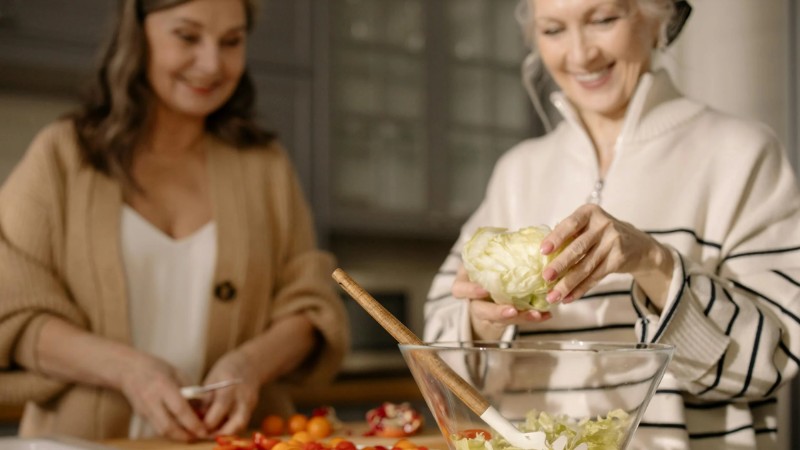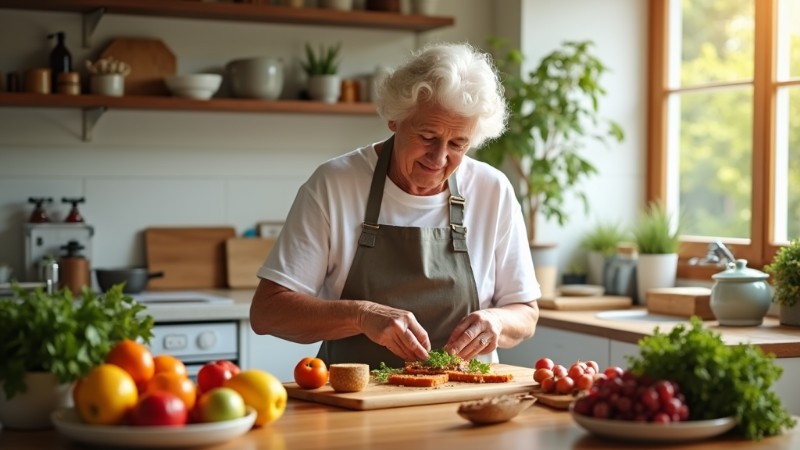Vitamin B12, also known as cobalamin, is an essential need for numerous bodily functions, including red blood cell production, DNA synthesis, and maintaining neurological health. As people age, the risk of vitamin B12 deficiency increases, which can lead to serious health issues like anemia, cognitive decline, and nerve damage—conditions particularly concerning for seniors.
Addressing the global vitamin B12 deficiency
Vitamin B12 deficiency is a widespread issue, impacting millions globally, with seniors being at higher risk due to reduced absorption capabilities as they age. In the UK and the US, approximately 6% of adults under 60 experience B12 deficiency, but this figure rises significantly in those over 60.
In regions such as Latin America, Kenya, and India, deficiency rates can soar to 80% among certain populations, further highlighting the global scope of this problem.
Traditional sources of B12, like meat, eggs, and dairy, come with health concerns for older adults, such as cholesterol and heart disease risks, in addition to significant environmental impacts. Livestock farming, which contributes up to 20% of global greenhouse gas emissions, also underscores the urgent need for more sustainable and healthier B12 sources for seniors.
https://x.com/MuZlandia/status/1828579872631071082
A promising alternative in spirulina
Spirulina, particularly Arthrospira platensis, is a blue-green microalga celebrated for its high protein content and nutrient density, including calcium, iron, and various B vitamins. For seniors, spirulina offers two specific benefits: it helps in maintaining muscle mass due to its rich protein content and supports cognitive health with its high levels of antioxidants.
Historically, spirulina’s potential as a B12 source was limited because it contains pseudo-vitamin B12, which is not usable by humans. However, recent innovations in spirulina cultivation have sparked interest in its potential as a sustainable and effective B12 source, especially for seniors.
Researchers have developed new cultivation methods to boost the production of bioavailable B12 in spirulina, bringing its levels on par with those found in beef. This breakthrough could revolutionize how we address B12 deficiency in seniors, offering a plant-based solution that is both health-conscious and environmentally friendly.
Innovative cultivation in spirulina
A team of researchers, led by Asaf Tzachor from Reichman University and supported by experts from Iceland, Denmark, Austria, and the UK, has employed advanced biotechnological methods to enhance spirulina’s B12 content. These methods include photonic management within photobioreactors, which optimize light conditions to stimulate the production of bioactive compounds like vitamin B12.
Iceland-based Vaxa Technologies has pioneered a scalable photobioreactor system that leverages renewable energy to produce carbon-neutral spirulina biomass rich in active B12. This controlled environment enhances photosynthesis and bioactive compound synthesis, resulting in spirulina with active B12 levels as high as 1.64 micrograms per 100 grams—rivaling that of beef and surpassing traditional plant sources.
For seniors, it offers an alternative to animal-derived B12, potentially reducing the environmental impact of food production and the ability to produce high-B12 spirulina on a large scale could make a big difference, especially for older adults who need to maintain their B12 levels without the added health risks associated with animal products.
Challenges and future potential
While advancements in spirulina cultivation are promising, challenges remain in applying spirulina into mainstream diets for seniors. Issues such as taste, texture, and practicality must be addressed to make spirulina a viable alternative to traditional animal products. Its unique flavor and consistency might limit its use in certain foods, but researchers are optimistic that proper formulations can overcome these obstacles.
The global impact of these innovations is substantial. By repurposing electricity from heavy industries to spirulina production, Iceland alone could potentially produce up to 280,000 tonnes of spirulina annually. This amount could supply enough B12 to meet the daily needs of millions of seniors worldwide, addressing a critical nutritional gap with minimal environmental footprint.
As research continues, a sustainable and bioavailable B12 source could be an answer to combating vitamin B12 deficiency in seniors. This superfood not only supports health improvements but also aligns with environmental objectives, promoting a shift towards more sustainable food practices.
Exploring the full range of spirulina’s capabilities in various dietary forms will be essential as these technologies advance, paving the way for a healthier and more sustainable future for seniors.












